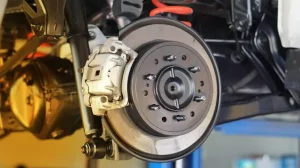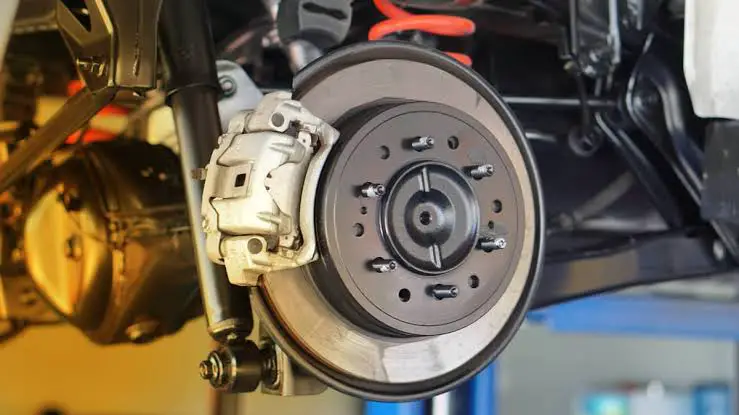Are you driving, and suddenly you start hearing a squeaking even though you have not applied the brake yet? Then it would help if you tried reading through this article. Not all squeaking noise comes from the brake, as many people may think. Several components in your Car could cause the squeaking noise, which can sometimes be very dangerous if not taken care of.
This is why you should not assume the noise comes from the brake. It would be best if you located where the noise is coming from.
What can cause the Squeaking Noise in your Car:
Below are the components that can generate the Squeaking Noise in your Car:
- Inclement Weather
- Rotors
- Calipers
- Brake pad
- Steering system
- Debris
- An overheated engine, etc.
Another factor that could also cause the squeaking noise is the dust that gathers around your rotor. This makes a loud noise when it clamps down on the rotors. Other potential causes of a squeaking noise are a stuck brake calliper or steering component fluid leak.
This article will answer all questions about the common causes of squeaking noise while driving, even when the brake is not applied.
What Can Cause Squeaking Noise While Driving But Brake Not Applied?

Below the some of the reasons why your Car makes squeaking noise while driving, even without any brakes applied:
Old Brake Pads
An old brake pad could be one of the common reasons your Car makes squeaking noise while driving but even when no brake is applied. It must be changed when you notice that the problem is from the brake pad. Brake pads do not last forever. It tends to be out over time, making them grind against the rotors.
Although, in this situation, it may still be risky, do well to replace your brake with a new one because the brake problem is different from what should be taken with levity. As soon as you notice the squeaking noise, try to confirm if the problem comes from your old brake pad and make a replacement.
Moisture
When the moisture is in excess, your vehicle may also make a squeaking noise in motion without a brake. Too much humidity in your Car causes your rotor to rust, which can make the pad squeal. The best thing to do now is take your car to a car technician to clean the rust on the rotor or repair the rotor.
Sticks & Stones (Debris)
When your tire usually gathers debris like tiny tree branches, small rocks, and acorns, it will cause the brake to squeak. It may even squeak with no brake applied when driving. This occurs when you ride on a rough sandy area or an area with lots of tiny stones.
To salvage this situation, you should look for external objects that are stationed between your brake pad and the rotors. Once found, do well to remove it.
Brake Pad Material
Automakers now use Ceramic materials because they are more robust and work better. The Metallic brake pads produce lots of noise when compared to their counterparts. Approach a technician installing ceramic pads to get rid of the noise.
Glazed Or Grooved Rotors
The rotors can be another reason your vehicle could be making squeaky noises when you are driving without applying brakes. Ask your technician to inspect the brake rotor to remove the groove after he must have changed the brake pads.
If the rotor condition is terrible, we recommend that it be replaced. The rotor can be cleaned up if it is okay. This process of cause should give you the sweetest of rides.
Negligence
Handling your Car with negligence can also be one reason your Car could be making an annoying noise and, for instance, making a mechanical error of not lubricating your brake pins after you must have changed your rotor.
You can remind your car technician to lubricate the “anti-rattle” to reduce the noise from the brake pad.
Can you continue to drive a car with Squeaking Noise When brakes are not Applied?
Imagine hitting the road expecting a smooth ride without noise, but then, you are met with an annoying noise from your Car. In most cases, squeaking noises from a moving car without the brake being applied are not but can be annoying and unpleasant to the ears.
If a particular thing causes you discomfort, the best thing to do is to fix it. It would be in your interest to get it fixed for your benefit and those around you. Managing the squeaking noise for too long can impact your rotor by making it warp, shortening the stopping distance. So it would help if you acted fast as soon as you notice any issue.
Noises Brakes Can Make
Below are other noises the brake can make while driving:
Grinding noise
A grinding noise is not your average noise from your brake pad. We recommend you take this noise severe by location the nearest vehicle technician for repair.
The Grinding noise occurs when the brake pad is worn out, causing contact between two metals. The effect is that it would be harder to stop your car or hold a brake at once. This could cause an accident.
Thumping
This problem may take your technician a lot of time to identify where the problem might be coming from. If you notice this sound, the best place your technician should look out for are:
- The ball joints.
- The low tire pressure,
- The worn-out struts
Squealing
This type of noise does not indicate danger but can be very annoying. This annoying squealing sound often happens when the brakes get dirty. The squealing usually occurs when you last used the vehicle a long time ago or when the brake is dirty. This problem can be easily solved. You only need to drive the car a little and apply some brakes. If the problem comes from the dirty brake, all you need to do is clean it up to stop hearing the squealing noise.
How do you fix Car with Squeaking Noise While Driving But Brake Not Applied?
Below are what you should look out to fix in case of squeaking noise while driving without applying brakes
Drive Forward and Backward a Couple of Times
Sometimes, such a problem in the Car could be solved by repeatedly moving the car forward and backwards. This is because moving the car forward and backwards can remove anything that might have been stuck in the wheels or brake.
If, after driving around, the debris refuses to go out, you can remove it manually.
Inspect the Brakes
If you discover debris from the brake or wheel is not the problem, you can inspect the brake intensively.
- Inspect the calliper to know if they are seized. If they are, repair it immediately.
- Also, inspect the rotors and the brake pad for rust. If it has rust or corrosion, proceed to swap them.
Inspect the Engine for Noises
After you have finally done the above, you can check the engine. As soon as the engine starts running, you should keenly observe and pay attention to the engine’s sound to determine the source of the sound. For instance, the sound may be coming out from the belt. Immediately you notice this; we advise you to replace it to avert future damage.
Try To Inspect Transmission
The gearbox should be the next place you should observe after you are done with the above diagnosis. The only issue you are going to meet here is that finding the transmission problem can be very challenging and should be handled by someone experienced with the right equipment. This is because it is difficult to find. You can also observe the fluid and fill up before you hit the road. Please note that it will need to be replaced if it is worn out or burnt.
